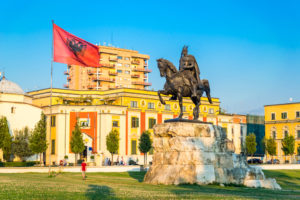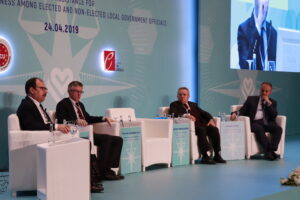
Increasing Attractiveness, Inclusiveness and Relevance of VET and Adult Education
The overall objective is to improve skill matches of youth and adults in line with labour market needs by increasing access to quality vocational education, training and adult education. The project supports the Ministry of Education and Science of the Republic of Nort Macedonia and related national educational

Technical Assistance for Promoting Women’s Employment in Turkey
The employability of women has been a challenging issue in Turkey for decades. The labour market of women needs to be improved in terms of the existing capacity to design, develop and implement policies to attract and retain more people in employment, particularly by increasing the participation of

Technical Assistance to Support the Reform on Employment Policies and Vocational Education and Training
This project aims to contribute to implementing the 2019 – 2022 National Employment and Skills Strategy (NESS) action plan of Albania. The implementation of this action plan will help strengthen the capacities of Albania’s Ministry of Finance and Economy and its subordinated institution (National Agency for Employment and

Technical Assistance for Promoting Youth Employment
The participation of young people in the labour market is a challenging topic for every country. To increase the employability and entrepreneurship of young people, one needs to attract and retain more people in employment by promoting youth employment and decreasing the unemployment rate of young people. Within

Technical Assistance for the Sector Reform Contract EU for Youth
The project’s overall objective is to improve young people’s vocational qualifications, skills, and preparedness to enter the labour market and better implement the Youth Guarantee scheme in the Republic of North Macedonia.

Technical Assistance for Prevention of Corruption and Promotion of Ethics
Despite the OECD’s assessment that Turkey has made significant progress since 2007 in its efforts to combat corruption, the issue continues to represent an obstacle to economic and social progress and, potentially, to greater integration with the EU. The overall objective of the project was to contribute to

